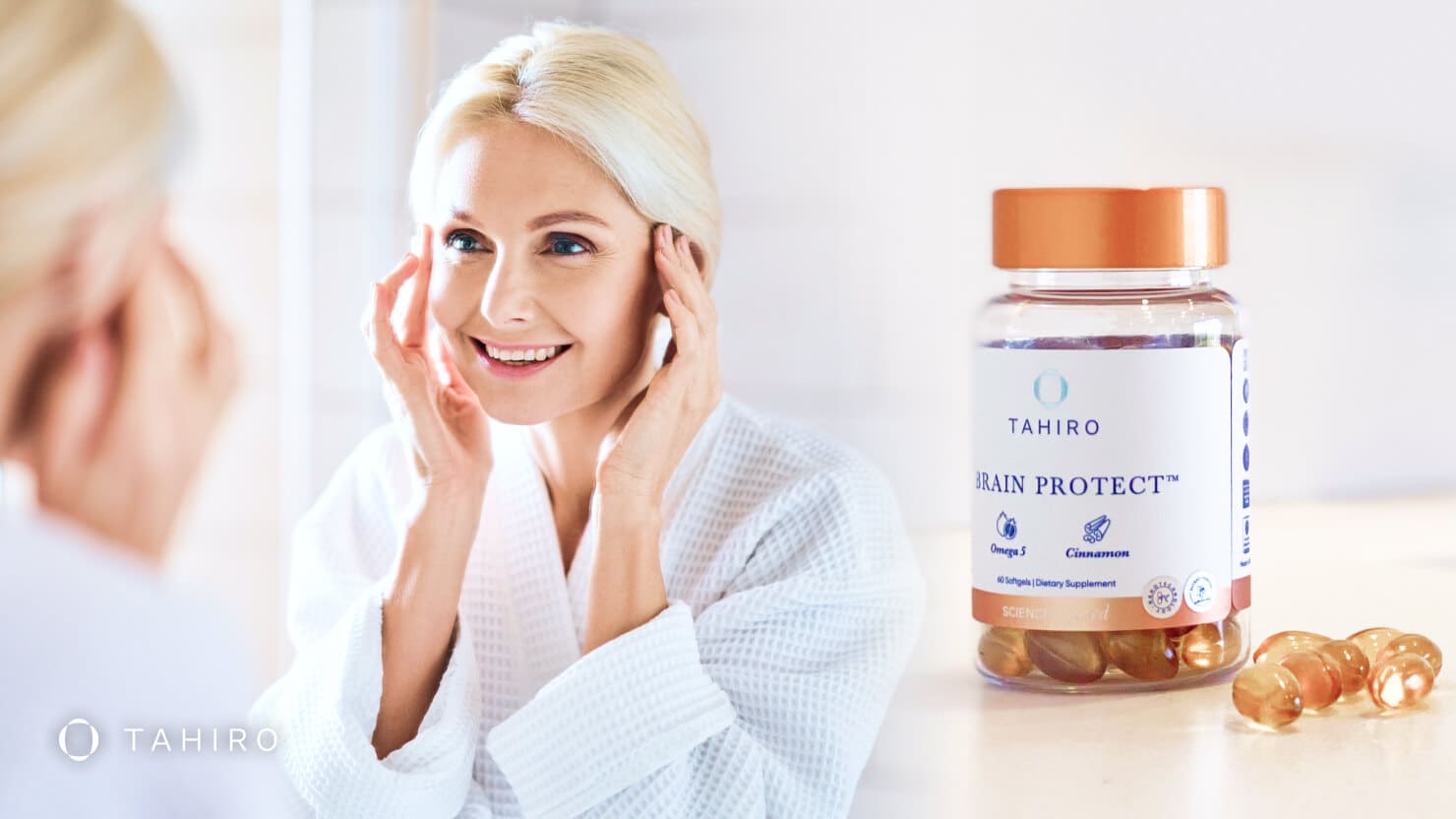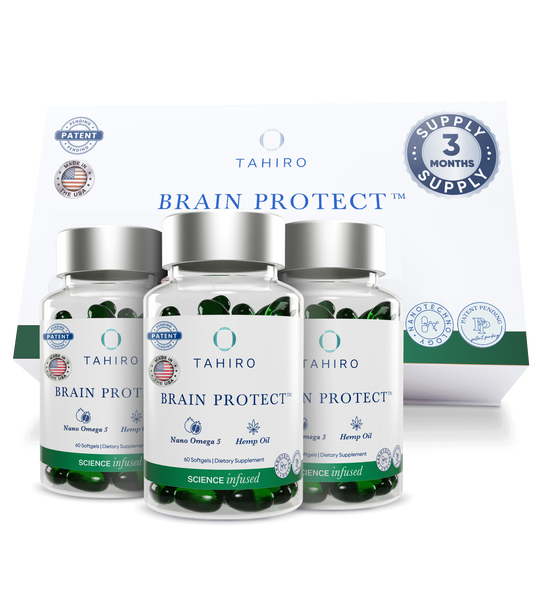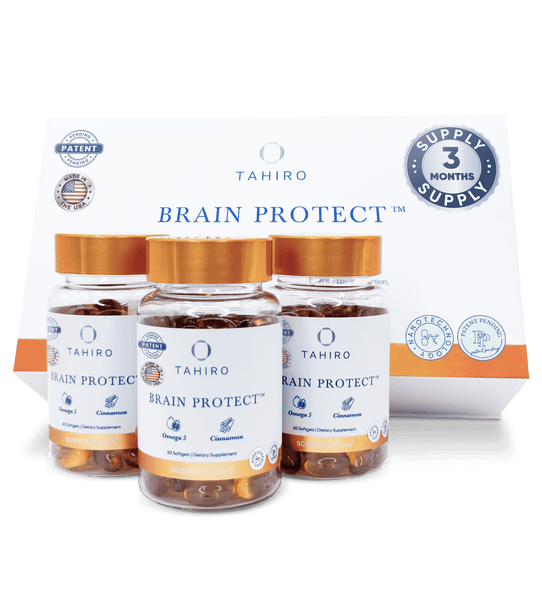You may have heard of Omega-3 and its well-knownskin health benefits, including improving skin hydration, reducing inflammation, and enhancing elasticity. This fatty acid has gained considerable attention in recent years.However, there's another lesser-known fatty acid called Omega-5 that offers itsown unique advantages when it comes to skin health. Omega-5 stimulates collagen production, provides protection against toxins, and aids in wound healing. In this article, we will take a closer look at the powerful properties of Omega-5and its remarkable impact on promoting healthy and vibrant skin.
What Are the Omegas?
The three well-known Omega fatty acidsare Omega-3, Omega-6, and Omega-9, with Omega-7 and Omega-5 also in the mix. Omega-3 alpha-linolenic acid (ALA) and Omega-6 linoleic acid (LA) are bothconsidered essential fatty acids, meaning your body can't produce them, so youmust obtain them from food sources or supplements. Omega-5, predominantly foundas Punicic acid, is derived primarily from pomegranate seed oil and offersdistinctive health benefits, although it's not classified as an essential fattyacid. On the other hand, the Omega-9 oleic acid is non-essential; your body canproduce it, but it can also be acquired from food sources. Consuming the rightbalance of Omega-3, Omega-6, Omega-5, and Omega-9 is crucial to support youroverall health and well-being.
Is Omega 5-Punicic Acid good for your skin?
Yes, Omega-5 Punicic Acid is incredibly beneficial for the skin. Punicic acid is a specific type of Omega-5 and the primary component in pomegranate seed oil. With its unique structure among unsaturated fats, it is considered a powerful antioxidant. This structure aids in keeping cell membranes flexible, which in turn improves cellular functioning. As a result, Omega-5s offer a myriad of potential benefits, from disease prevention to improving overall health.
What Does Omega 5 Do for the Skin?
Omega-5 has a significant impact on skin health and appearance. Premature aging due to factors like UV radiation, pollution, and exposure to tobacco smoke results in wrinkles and an increased risk of skin cancer. Additionally, harmful external factors, such as extreme temperatures, harsh skincare products, and blue light exposure from screens, can compromise skin integrity, leading to sagging skin, dryness, and a generally poor appearance. Omega-5 plays a vital role in combating these challenges by simulating keratinocyte proliferation in the skin, offering a multitude of benefits:
-
Collagen Production:
As we age, collagen production diminishes, impacting skin elasticity and hydration. It's estimated that after the age of 20, our dermis layer produces 1% less collagen each year.
-
Anti-inflammatory and Antioxidant Properties:
Omega-5 aids in skin health and response to inflammation. For instance, patients who applied topical Omega-5 post-laser treatment experienced reduced itching and swelling. It's also beneficial for those with skin conditions like eczema.
-
Protection Against Toxins and Environmental Stressors:
Omega-5 offers a shield against many of the harmful external factors previously mentioned, ensuring your skin remains resilient.
-
Prevention of Premature Aging:
With its protective properties, Omega-5 can combat the signs of aging induced by sun exposure and other damaging elements.
-
Wound Healing:
Omega-5 can expedite the wound healing process, restoring the skin's natural barrier and function.
Does Omega 5 Have Other Benefits?
Omega-5's multifaceted benefits are not limited to just skin health. For instance, its role in cholesterol control is evident as Omega-5 supplementation has been associated with an increase in beneficial HDL cholesterol levels. Additionally, it has the potential to mitigate the risk of dementia by reducing the accumulation of beta-amyloid in the brain, a protein closely linked to Alzheimer’s disease. Furthermore, Omega-5s are instrumental in supporting the health of brain membranes, which subsequently can lead to enhanced memory and overall brain function.
Best sources of Omega 5 for skin health.
While direct dietary sources of Omega-5 are limited, here are some primary contributors:
-
Pomegranate Seed Oil:
The richest source of Omega-5. The seeds themselves can be incorporated into salads and smoothies.
-
Grass-fed Full-fat Dairy:
Contains higher fatty acid content.
-
Fatty Cold-water Fish:
Such as wild-caught salmon, tuna, herring, sardines, and mackerel.
-
Nuts and Seeds:
Macadamia nuts, walnuts, chia seeds, and flaxseed are good examples.
-
Plant Oils:
These include soybean, flaxseed, coconut, canola, and palm oil, although Omega-5 content may vary.
-
Considerations for Dietary Preferences:
Even if being vegan or vegetarian doesn't limit access to Omega-5, achieving enough just from food can be a challenge. High-quality supplements enriched with fatty acids offer the protection and health benefits essential for skin health.
Can you get it from pomegranate juice?
When pomegranate juice is extracted, it is primarily from the pulp and not from the seeds, the source of Punicic Acid. Therefore, the concentration of Omega-5 in the juice, if present at all, would be negligible.






